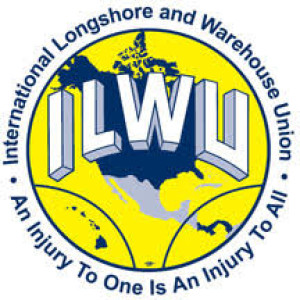
On this day in labor history, the year was 1937.
That was the day the International Longshoremen’s and Warehousemen’s Union was founded.
After the victorious strike of 1934 that established the union hiring hall,
West Coast union leaders embarked on an inland campaign to organize the thousands of warehouse workers who handled shipped goods.
But West Coast dockworkers overwhelmingly chose to join the CIO after it was expelled from the AFL earlier that year.
They found the ILA planned to abandon the warehouse workers they had worked so hard to organize.
They also opposed dues assessments to fight the CIO and disagreed with the ILA’s hostility to minimum wage laws, social security and unemployment insurance.
Radicals like Harry Bridges and others had established themselves not only as workers leaders but also led attacks on Jim Crow racism in the ranks and in the industry.
The success of the 1934 strike was due in part to the welcoming of blacks into the ranks of the union.
In his Workers on the Waterfront, historian Bruce Nelson notes that, “the ILWU’s well-known opposition to racial discrimination was an important factor in the union’s expansion into Hawaii, not only on the waterfront but among sugar and pineapple plantation workers. The triumph of the ILWU in Hawaiian agriculture brought about a degree of fraternization across racial lines that few had thought possible.”
Since then, the union has beat back numerous Taft–Hartley and McCarthy era attacks.
More recently, the ILWU has been in the forefront of broader social justice struggles, leading walkouts and work stoppages for various political causes.
Today it represents close to 60,000 workers, including those locals that initially refused to affiliate.
More Episodes
 2024-05-19
2024-05-19
 2024-05-12
2024-05-12
 2024-05-12
2024-05-12
 2024-05-12
2024-05-12
 2024-05-12
2024-05-12
 2024-05-12
2024-05-12
 2024-05-12
2024-05-12
 2024-05-12
2024-05-12
 2024-05-05
2024-05-05
 2024-05-05
2024-05-05
 2024-05-05
2024-05-05
 2024-05-05
2024-05-05
 2024-05-05
2024-05-05
 2024-05-05
2024-05-05
 2024-04-28
2024-04-28
 2024-04-28
2024-04-28
Create your
podcast in
minutes
- Full-featured podcast site
- Unlimited storage and bandwidth
- Comprehensive podcast stats
- Distribute to Apple Podcasts, Spotify, and more
- Make money with your podcast
It is Free
- Privacy Policy
- Cookie Policy
- Terms of Use
- Consent Preferences
- Copyright © 2015-2024 Podbean.com




